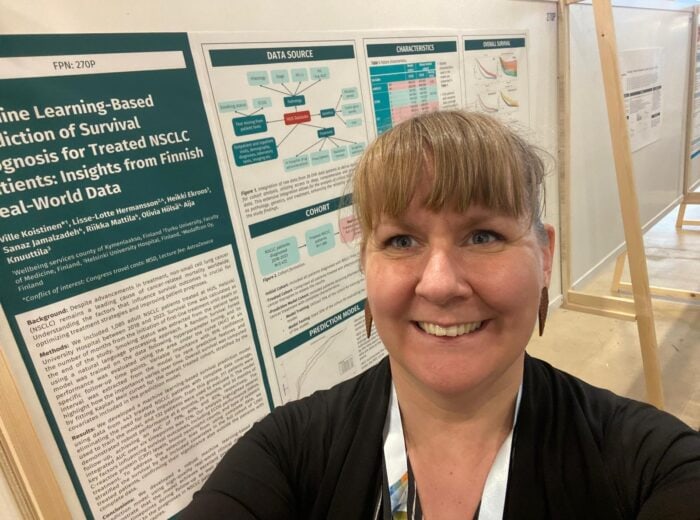Medaffcon Presented Insights from Finnish Real-World Data at European Lung Cancer Congress
Medaffcon's European Lung Cancer Congress (ELCC) poster showcased key findings from a recent study on non-small cell lung cancer (NSCLC).
We already have clinical medicine trials. Why on earth do we also need real world evidence? The question makes sense, but so does the answer: real world evidence does not replace the data received from clinical trials but complements it significantly.
Teduglutide is a concrete example of using real world evidence. It is the first medicinal product intended for the treatment of short bowel syndrome. In Finland, it received limited basic reimbursement for child patients last spring after Medaffcon’s Helsinki and Uusimaa Hospital District HUS’s and Pharmaceutical company Takeda’s project using real world evidence was completed.
In short bowel syndrome, bowel function fails, and the small intestine no longer absorbs enough liquids and nutrients. The reason can be a surgical removal of a portion of the intestine, disease or an innate damage. Without medicine, the only treatment is parenteral nutrition, which means nutritional solution administered directly into the vein.
In Finland, ca. 20 short bowel syndrome patients are annually treated.
Medaffcon, pharmaceutical company Takeda and Hus reviewed the use of healthcare resources and costs related to patients with short bowel syndrome in 2010–2019. They had access to Hus data lake.
According to Scientific Advisor at Medaffcon, Liisa Ukkola-Vuoti, the fact that short bowel syndrome does not refer to one disease made it more difficult to find the patients. Patients could not be found with a single diagnosis code, but the patient lists of physicians provided the researchers with a comprehensive picture of the patients.
For example, demographic data was collected on the patients, i.e. sex, weight and height, information on received treatment, that is, patient visits and contacts, interventions and laboratory examinations, data on recorded diagnoses and excerpts from patient texts.
– Research cooperation has been fruitful with Hus clinicians. Physicians at adult and paediatric wards have been able to cooperate within the project, tells Ukkola-Vuoti.
At the moment, involved researchers and physicians are preparing scientific publications on the topic.

The teduglutide case demonstrates the benefits of real world evidence. In addition to this, real world evidence can help, for example in:
Medaffcon’s Scientific Advisor Liisa Ukkola-Vuoti talked about the significance of real-world data through the teduglutide example at Medaffcon’s customer evening organised at Espoo Museum of Modern Art Emma on 14 Sep 2022.

Medaffcon's European Lung Cancer Congress (ELCC) poster showcased key findings from a recent study on non-small cell lung cancer (NSCLC).

Johan Rehnberg started working as a Scientific Advisor at Medaffcon’s Swedish office in August 2024. He is a dynamic researcher who values opportunities to learn new things and develop his skills – opportunities that Medaffcon provides.

The algorithm was originally developed to extract smoking status from patient texts with purpose to analyze the effects of smoking on postoperative complications. Today, it is also being utilized in lung cancer research.